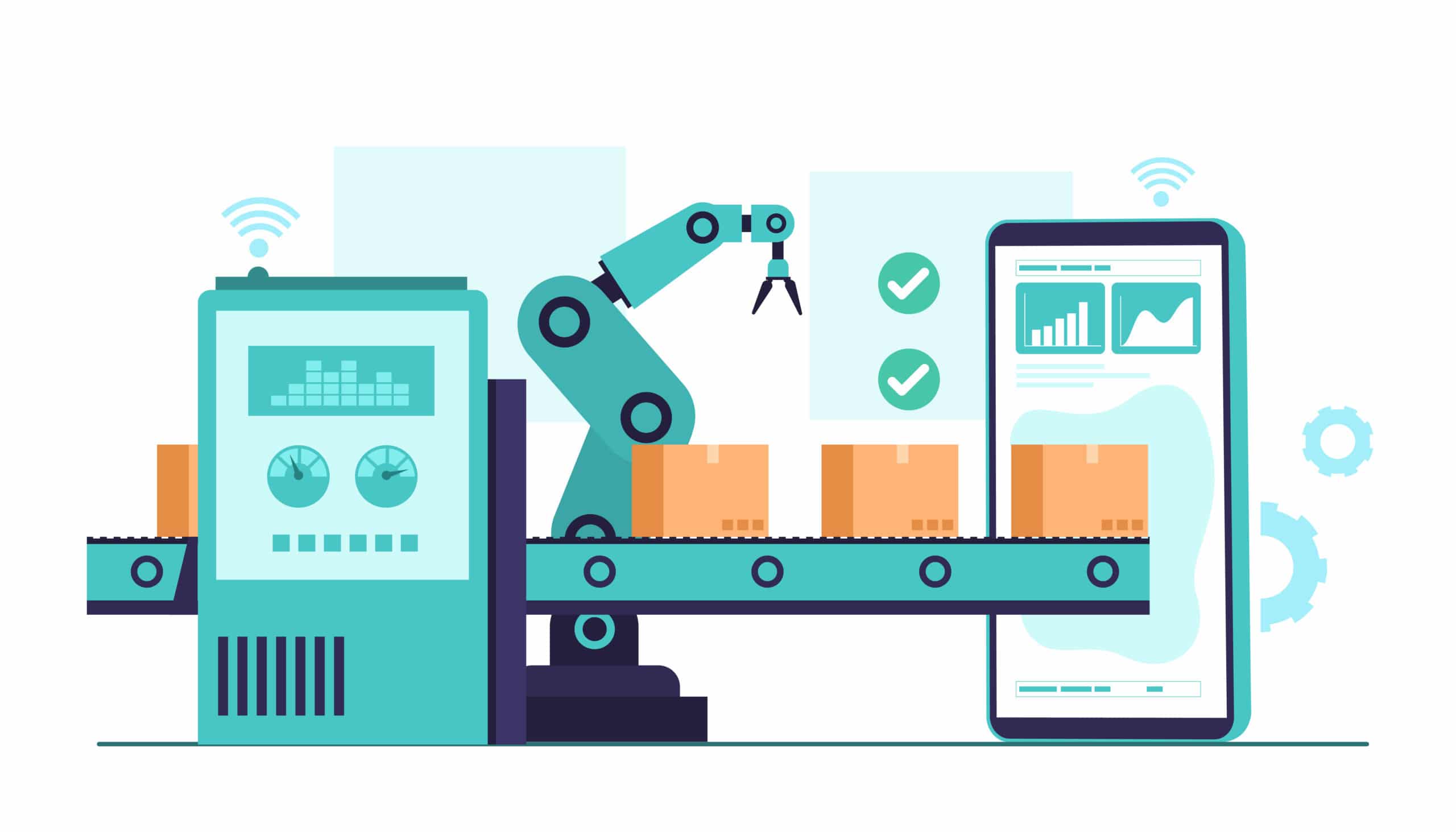Industrial companies are among the most exposed to digitalization changes. Such changes arise as a result of advances in new technologies like IoT (Internet of Things), Cloud Computing, Big Data, and Artificial Intelligence, among others.
What is industrial digital transformation?
Digital transformation in industrial companies consists of the transition to new business models and revenue streams based on three fundamental pillars.
- Sales channel automation
- Process and operations improvement
- Production process optimisation
This type of transformation represents an integrated culture change in all teams and a shift in the managerial approach the different areas of the business.
7 Incentives for industrial digital transformation
1. Implement the use of ERPs and CRMs to improve your operations.
The integration of digital technologies such as ERPs or CRMs results in procedural transformation and digitisation of documents. This, in turn, results in an improved process efficiency.
These softwares replace unnecessary tasks within the company’s daily processes, making them much more efficient. This typically translates into improved time management and reduced production costs.
Finally, data centralisation allows real data-based decision making, which is a great competitive advantage for the industrial companies.
2. Monitor and automate the production chain with IoT
The Internet of Things or IoT applied to industrial operations consists of the implementation of remote monitoring systems at all points of the production chain.
These systems help to work without errors and with higher efficiency than any worker.
In addition, sensorization of the chain significantly increases reaction capacity. For example, if there is a problem on a production floor, a notification will be sent automatically to the technician in charge. This minimises the time needed for identifying and solving the problem, even with fewer technicians available on site.
Finally, the implementation of simple systems, such as label readers that automatically integrate data into the company’s ERP, increases logistics efficiency and prevents shipment errors.
3. Automate sales thanks to the digital channel
All competitive industrial companies must have a digital marketing plan based on the sales funnel. It is crucial to work on each and every one of the points outlined below in order to generate a continuous inflow of business opportunities.
Below are some key incentives for each stage of the buying process.
Awareness: We want to make the brand known.
- Google Ads Display Campaigns
- Youtube Ads
- Linkedin Ads
- Organic actions in RRSS
Consideration: We want our product to be considered
- SEM Campaigns
- Content Marketing
- SEO Optimisations
- Google My business
Conversion: We want them to contact us
- Remarketing campaigns
- User-centric website and simple usability
- Informative webinars
Sales: We want them to buy
- CRM & ERP sales team
- Open e-commerce platform B2C
- Closed e-commerce platform B2B
- Social Selling on Linkedin
Retention: We want them to buy again
- Email Marketing Automations
- Loyalty plans
4. Stimulate innovation to limit disruption
Digital transformation drives the culture of innovation, allowing the company to discover new value propositions and business opportunities.
With newly generated data, companies now have the possibility to innovate, using previously unexplored information. This supports each organisation in getting ready for future trends and saving money while preventing future disruptions.
5. Stimulates teamwork and communication
The flow of information that is generated thanks to the digital channels with tools such as Slack, Microsoft teams and many others, facilitates communication between departments. This allows people from different areas of the company to get easily involved into any project, regardless of where they are.
In addition, this provides a complete view of the different tasks of each team member for a much more globally-optimised management.
What is more, the fact that the information is immediately accessible anywhere and at any time facilitates the work between the different teams.
6. Improve data usability
Digital transformation builds a culture of data-driven decision making. Improved analytics systems result in optimising managerial decision making, and therefore, help to optimise the business processes.
7. Attract new talent
The companies that successfully achieve digital transformation will be the ones that attract most qualified professionals with important skills for this complex and innovative environment.
Moreover, if change is managed in an appropriate and responsible manner, it will benefit all parties involved, generating greater job satisfaction value for employees.
Human motivation, paired with effective digital tools, will be reflected into the company’s productivity and profitability.
Why is it important to start the transition as soon as possible?
A company’s level of competitiveness is directly related to its ability to manage processes and increase productivity.
Companies that want to survive in their industry must at least adopt digitalisation as a fundamental part of their core.
Industrial digital transformation has gone from being an option to gain a competitive advantage to a necessity to survive in Industry 4.0. This is because without the right digital competencies, companies will not be able to keep pace with emerging demands or compete against the rest of the companies within the industry.
Start your digital transformation
At CRONUTS.DIGITAL we have helped several international industrial companies to automate their sales channels, generate better team cohesion and improve their operations with the implementation of different data management and visualisation systems.
Are you thinking of digitally transforming your industrial company?
We can help you with your project



